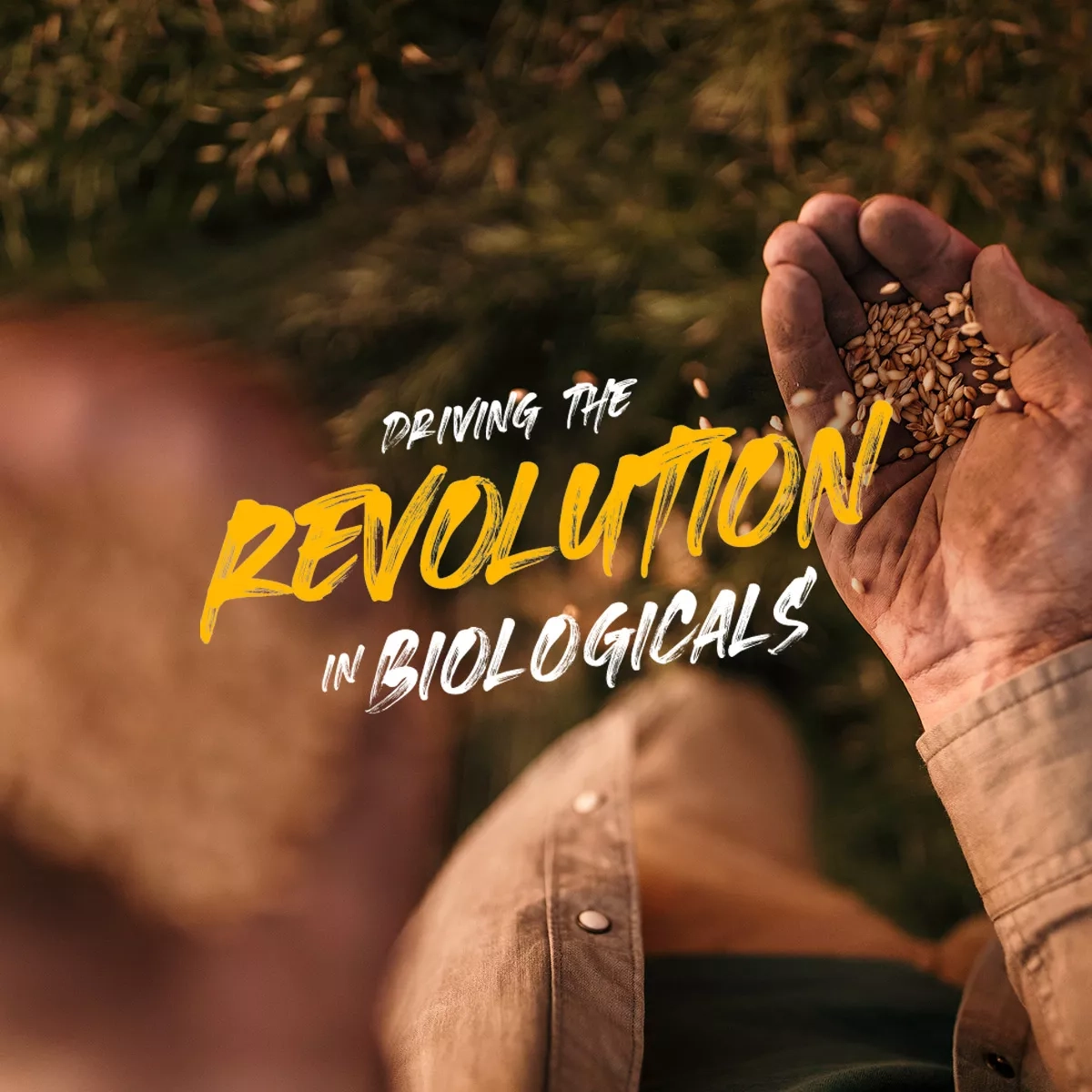
B2B sustainability marketing trends
Marketing & sustainability: How to get it right?
In today’s market, conscious consumer behavior is leading to more and more deliberate purchasing decisions. Companies are increasingly prioritizing sustainability, not just to meet their customers’ demands but also to grow and potentially become leaders in an environmentally aware world.
As a creative marketing agency, we are deeply involved in sustainability discussions with our clients. With this article, we aim to highlight the benefits and pitfalls, discuss setting the right goals, and offer guidance on how to communicate them effectively. Let’s discuss how to start making a real impact and whether there is a finish line if you’re doing it right.
In today’s market, conscious consumer behavior is leading to more and more deliberate purchasing decisions. Companies are increasingly prioritizing sustainability, not just to meet their customers’ demands but also to grow and potentially become leaders in an environmentally aware world.
As a creative marketing agency, we are deeply involved in sustainability discussions with our clients. With this article, we aim to highlight the benefits and pitfalls, discuss setting the right goals, and offer guidance on how to communicate them effectively. Let’s discuss how to start making a real impact and whether there is a finish line if you’re doing it right.
To be seen as genuine and honest, you should start at the core
Employees and customers alike aren't just hoping for, but rather expecting, a clear commitment to a greener, cleaner future from the companies they support and work for. It may seem easy to just add a sentence about sustainability to your messaging and call it a day. But to truly have a positive impact on the environment and to also ensure your company is seen as genuine and honest, you should start at the core - your mission - and from there work toward clear goals and a dynamic strategy.
Why Sustainability goals matter?
Of course, the most obvious win is for our planet. As organizations, we carry a significant responsibility for CO2 emissions, waste, and ultimately, climate change. Every company, regardless of size, can make a difference, and the larger the organization, the greater its potential impact. While sustainability is a core part of some companies' DNA, making their path clear, others, often multinationals with a long heritage, are still transitioning towards sustainability. This makes communication more challenging, as these companies are not yet fully green.
"Some companies are born with sustainability at their core, while others evolve towards it step by step."
Since most marketers cannot directly influence their company's business strategy, they must seek out and promote sustainable initiatives that can be effectively integrated into their marketing efforts. Although you might already have some communication topics in mind to start discussions about reducing CO2 emissions, we can provide a few examples to help you get started.

Key sustainability topics for effective communication
Reducing the carbon footprint: This includes switching to renewable energy, smarter logistics to cut fuel use, or investing in carbon offset projects.
Waste reduction: Efficient use of resources, kick-starting recycling programs, and embracing a circular economy.
Sustainable sourcing: Ensuring that what you buy or use is as planet-friendly as possible.
Employee wellbeing and diversity: Aiming for a workspace where everyone's safe, included, and has equal opportunities.
Community engagement and social responsibility: Making a mark in local communities, supporting smaller businesses, and more.
Product lifecycle management: Designing products that keep the environment in mind from start to finish.
"An authentic approach not only builds trust but also forges a deeper connection with your audience."
When crafting your narrative around these sustainability topics, it's crucial to convey your message with transparency and sincerity. Honesty is the backbone of effective communication, especially in sustainability. Therefore, be forthright about your company's efforts, acknowledging both achievements and areas for improvement.
This authentic approach not only builds trust but also makes a deeper connection with your audience. Remember, authenticity involves showing a willingness to evolve and adapt openly. Let your communications reflect the ongoing journey of your sustainability initiatives, rather than presenting a polished, final outcome.
An authentic approach not only builds trust but also forges a deeper connection with your audience. Engaging in genuine, humble dialogues about your company's sustainable practices encourages a culture of transparency and continuous improvement, reinforcing the impact of your commitment on the environment and society.

"Structure your goals and authentically involve stakeholders with a well-defined sustainability strategy."
To optimize the process, a well-developed sustainability communication strategy is essential. By first setting up a roadmap where you write out your organization's purpose, priorities, and goals for sustainability. This roadmap can be used as an internal tool and helps to keep all business areas aligned and ensures your story is always consistent. Make sure your mission gives your story value.
The next step is to share your sustainability story creatively and authentically with your audience, using an omni-channel strategy to reach your audiences in various ways and at different times for greater impact. Using the right channels and assets, you can set yourself as a thought leader, which will help you gain more brand loyalty and more customer engagement.
You build customer loyalty by fulfilling your promises, providing exceptional service, and involving your customers in your sustainability journey. These steps ensure you don't fall into the trap of empty phrases. Always keep in mind: 'How do you make a difference, and what are the results?' Be authentic, and show what you're doing on a day-to-day basis.
What is the pitfall?
Communicate your sustainability efforts transparent and in the right way, can offer your brand a lot of opportunities; doing it for the wrong reasons can label the efforts as 'greenwashing'. The term 'greenwashing' was first used in 1986 - 'yes, much earlier than I thought as well' - by environmentalist Jay Westerveld. He claimed the hotel industry promoted the reuse of towels as part of a broader environmental strategy; when, in fact, the act was designed as a cost-saving measure.

"The days of greenwashing are behind us. It is time for authentic storytelling."
Nowadays, greenwashing is seen in many shapes and sizes. We will name a few examples to give you a better understanding of the reality of this term:
Greenlighting: Organizations advertising their minor good-doing projects, overshadowing their main, less eco-friendly production.
Greenshifting: Brands like Coca-Cola created Keep America Beautiful to blame consumers for litter, diverting attention from their waste production.
Greenlabeling: Kohl’s and Walmart faced lawsuits for falsely marketing rayon products as environmentally-friendly bamboo.
Greenrinsing: Coca-Cola and PepsiCo keep changing their ESG goals for reducing virgin plastic use, avoiding real progress.
Greenscamming/Astroturfing: Shell organizations, like the National Wetlands Coalition backed by Exxon and Texaco, pose as grassroots groups to oppose environmental protections.

In light of this, customers deeply appreciate transparency and honesty in a brand's sustainability communications. There lies immense power in humility; acknowledging that while it's impossible for multinationals to tick all the green boxes right away, a sincere revelation of this fact resonates well with the public. When customers see that a company is earnestly on a journey towards becoming more green, they are more likely to support and stay loyal to the brand.
"Embrace the journey, not just the destination; honesty and transparency in sustainability are the backbone of trust and loyalty."
This ongoing commitment to improvement, rather than the pretense of perfection, helps build a relationship based on trust and shared values. As the market becomes ever more crowded with claims of sustainability, the brands that stand out are those that not only preach about their green initiatives but also practice them with a genuine commitment to making a positive change. This approach not only avoids the pitfalls of greenwashing but elevates a brand's reputation, making it a respected leader in corporate responsibility.
Your dedicate sustainability marketing agency
In the realm of sustainability communications, conveying the essence of circular or sustainable products or goals can be complex. We partner with companies already making eco-positive changes and those ready to start. From big corporates slowly transitioning to scale up pioneers who are truly revolutionizing their industry and the world.
We truly believe imagination can play an important role in the transition to a more sustainable world. After all, imagination is at the heart of most inventions, innovations and is the driving force of change. Imagination fuels our curiosity to solve problems with unexpected ideas, thinking in possibilities and envisioning what does not yet exist.

"Our purpose is to inspire and support all genuine efforts toward sustainability, guiding you with every step towards a better future."
But imagination needs action to come alive, and some of our agri-tech customers like Biotalys, Aphea Bio, and Elicit Plant have used the transformative power of imagination to revolutionize ways to reduce food waste, minimize pesticide use, and enhance plant resilience to drought. Our team of imagineers is proud to be part of their journey, helping them build strong brands and effective marketing strategies.
They say we’re all here for a purpose and ours is to inspire and support all genuine efforts toward sustainability. Help entrepreneurs and companies unveil their true essence, sustainability goals and bring them to life with authentic storytelling.
Take a look at some cases below or our sustainability page where we explain more about our mission and vision, and where we showcase the work we are very proud of.

About
the author
Merel Roelofs, Clients Service Director
Managing diverse international client relationships across the food, health, tech, and sustainability sectors, consistently ensuring we surpass our clients' expectations.
About
Norvell Jefferson
Focusing on companies in health, food, technology, and sustainability industries, Norvell Jefferson commits to projects impacting the world of their clients. They aim to transform complex science into inspiring, uniquely visualized stories, developing brands for market leaders.
Find out more

Aphea.Bio - branding
We developed a new brand identity and investor narrative that positioned Aphea.Bio as a leader in sustainable agriculture. The rebrand elevated their story and helped attract key investors.
The rebrand supported Aphea.Bio’s Series C, securing €70M to accelerate growth.
Biotalys - branding
We created a brand ready for Biotalys’ IPO and the launch of its groundbreaking product. The new identity positioned them as an innovator challenging the status quo in sustainable agri-bio solutions.
The rebrand ignited investor confidence and played a key role in Biotalys’ successful IPO.

AAK - Kolo Nafaso awareness campaign
AAK isn't just about top-quality shea and Cocoa Butter Equivalents; it's a brand with a heart for genuine sustainability. Together with Norvell Jefferson, we highlighted the people in the Kolo Nafaso supply chain, showing that when you do good, everyone benefits. Our approach not only told AAK's story but truly amplified their impact, making a lasting difference in their sustainability journey. Dive into a tale of care, community, and real change.

Cargill Cocoa & Chocolate - awareness campaign
We helped Cargill share the story of sustainable cocoa, celebrating the farmers behind every bar. Through immersive storytelling, we brought their journey from farm to chocolate to life.
The campaign boosted Cargill’s visibility and sustainability reputation across EMEA.

Associated Weavers - product launch campaign
We helped Sedna introduce the first premium carpet collection made from recycled fishing nets. Through cinematic storytelling and bold branding, we brought their sustainability mission to life.
The launch of the first recycled fishing-net carpet secured strong point-of-sale presence.

DS Smith - branding and activation campaign
We created a global sustainability campaign positioning DS Smith as a leader in the circular economy. It launched Circular Design Metrics and empowered customers to choose more sustainable packaging.
Active in 37 countries, the campaign reinforced DS Smith’s leadership in circular packaging.
